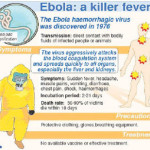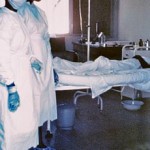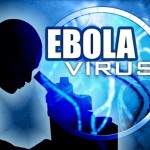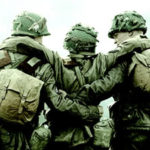How Ebola Will Impact Your Daily Life
Like it or not the inconvenient truth is that ebola will change your life whether you ever come near anyone who is infected or was exposed or not. There may or may not be a verified case for hundreds of miles from you but the precautions necessary to keep the virus contained and the fear of becoming infected by the general public will effect your daily life like it or not. Just as with the initial onset of the HIV/AIDS outbreak much needs to be learned about treating, preventing, and coping with the victims of the disease.
Your travel plans will be disrupted.
Every traveler in the world has been impacted with the changes in airport security since the 911 attack. With every new terroristic attempt to disrupt and injure travelers the security like a virus must mutate to remain viable to try and stay a step ahead of those who would harm others for political gain. If you have flown anywhere of late you know to expect long lines, to be prepared to remove your shoes and empty your pockets, go through a metal detector, have your baggage x-rayed etc… it has become the norm. Now those procedures will once again mutate in an attempt to protect us from illness that could be contained within the body of a fellow traveler. Planes have already been delayed, rerouted, and even grounded to deal with a sick passenger. At this time prior to getting on any international flight passengers are scanned for possible fever.
Eventually other forms of public transportation will also have to begin to take precautions. If they are wise officials will soon be taking the temperatures of those who board buses and trains as well. No one wants to be in a confined space where if another passenger is ill and sneezes or vomits where you could inadvertently be exposed. Unpleasant or not the fact is that these bodily fluids splatter.
Security at border crossings will be required to be upgraded as illegal alien traffic will and has increased because of people fleeing the virus and those who believe that the medical care is better in one country than another.
Since the second healthcare worker involved with the treatment of patient 0 has become symptomatic after flying on a Frontier flight. The airline must contact every other passenger on that plane which will be a frightening message for other passengers to receive.
Extra security, notifications and extra precautions cost extra money which will be passed on to those using the service. So your travel costs will rise.
Your medical care will change and costs will rise.
There will be those who are sure they are infected and will make the emergency room their form of reassurance and visit emergency services every time they have an ache or runny nose. And there will be those who will be afraid of being seen as one of the former and not seek medical care until they are very obviously ill and have exposed others due to their lack of urgency.
If there is an outbreak in your area or even just a larger portion of the population that have reason to fear they may have been exposed, Doctor’s offices, walk in clinics, urgent care clinics and emergency rooms will be backed up causing longer waits for care.
Whether there is a prevalence of cases or not in your location, each medical facility will have to meet minimum safety standards. Which could mean any symptomatic patient may have to be quarantined from the other waiting patients. With more patients and more precautions comes more work for the staff and longer waits for patients and increased costs. Your medical care costs will increase nation wide.
Quest Diagnostics one of the USA’s largest diagnostic labs has notified doctors and hospitals that they will not handle any ebola related work. Nor knowingly draw samples from any patient that they feel may be infected, Other diagnostic centers and labs may also decline to deal with suspected ebola patients. Many insurance companies require their policy holders to use a particular lab or diagnostic center. If you are refused treatment there you may have to pay out of pocket to have blood drawn or other diagnostic tests run at an uncovered facility. At this time anyway they are still doing EV-D68 testing. You could find that caretakers you have always used or that are covered by your insurance policy will not be available to treat you.
Your taxes will rise.
Treating Ebola is terribly expensive much more than any average citizen could hope to be able to afford. Those with insurance will quickly meet coverage maximums and those without will be at the cost of the tax payer.
Research and development are expensive under takings. As government scientists and medical researchers search for a cure and a preventative vaccine those costs will have to be covered by your tax dollar.
The added security at international check points and borders will also be at the expense of the tax payer whether he/she travels or not.
There are currently troops from various countries in Africa to assist building quarantine and treatment centers, These buildings are being financed by government funds and the troops involved paid by government funds. There is also the cost of monitoring the troops involved in these projects for their exposure to the virus. This is also paid by tax dollars.
Your supply costs will rise.
More and more people are beginning to prepare for self quarantine or state imposed quarantines. No one wants to do this with a weeks worth of supplies on hand! The incubation period for ebola is between 10-21 days that we are aware of at this point and time. It is simple economics that the higher the demand the higher the price goes.
The cost of sanitizing supplies will or has already risen in many areas. I purchased the same size and brand of hand sanitizer that I have always used at a local store in an area where there are no reported cases of the virus and it had almost doubled in cost since my last purchase a couple of months ago. I would expect that the costs of other personal protection equipment will also rise if they haven’t already. Masks, gloves, hospital gowns and aprons, shoe and hair covers and medical goggles will be in high demand.
Your child or elderly daycare and or school routine will change.
You can expect daycares, schools, and any public gathering locations for children or the elderly to begin to monitor the health of you and or your child much closer. Especially as flu season begins you can be sure that you will be more likely to be called if your child as a sniffle to come and remove them immediately rather than the child being sent to the nurses office as in the days before deadly viruses. There are currently 3 schools closed in Ohio based on children’s travel on the same plane as the 2nd infected healthcare provider.
Heightened precautions will need to be taken in these locations just as they will be with public transportation hubs and once again these changes will not be inexpensive so your costs will again rise.
If there should be a confirmed case of ebola or EV-D68 anywhere within those public systems you will need to be prepared to make alternative care arrangements for your children, disabled family members or the elderly in your care. While hazmat teams decontaminate the location.
First responders response will change.
First responders will have to be even more cautious than they already are to prevent infection. Particularly as we learn more and more about how these viruses spread. It is already pretty standard for an HIV patient who is able to notify first responders that they are HIV positive to assist them in protecting themselves from the virus however, those infected with ebola or EV-68D may not even be aware they are infected. So taking extra information from those calling for assistance will fall to police and or emergency operators to help prepare EMTs and other medical personnel for what is needed to provide both proper care and additional personal protection protocols can be used. This is bound to slow down the process.
Now it would be advantageous to a police officer or corrections officer who is preparing a suspect or prisoner for transport to wear more than a pair of gloves when doing a physical search. It will not be as simple as asking the individual if there is anything in their pockets that can stick them. I would imagine physical reactions from the stress of the situation, drugs, or alcohol would involve tears and perhaps vomiting which now would be even more of an issue than before.
Law enforcement have already been called upon to enforce the quarantine of television’s Dr. Nancy Snyderman who broke her initially voluntary self quarantine in New Jersey. Her quarantine is now mandated and officers are patrolling to insure she and her exposed crew remain quarantined until it is certain they did not become infected by a camera man who traveled and worked with them, who has since come down with the virus. How many extra officers may be required if there are other imposed home quarantines? If someone as well known as Ms. Snyderman was careless enough to be seen in public while in quarantine, what could we expect from those who don’t have the supplies or funds to remain stable while in quarantine and wouldn’t be so recognizable? If this were to become a common occurrence it would severely stretch the resources of law enforcement agencies. We could experience significant delays in service due to officers being on guard duty rather than patrol.
Summary
These are just some of the areas in which you can expect life since ebola to be different than prior to the outbreak and it’s movement across national borders.
The changes expressed above are assuming that the virus does spread in only a limited way from where it stands today. If the situation remains stable I believe you will find these changes occur regardless. But if the virus isn’t contained and does spread even if it doesn’t reach pandemic proportions you can expect other more drastic changes to your daily life. The world Health Organization announced that at it’s current rate of dissemination they expect the number of new victims world wide to reach 10,000 a week before December 2014.
Now while it is semi-contained is the time to prepare for a time when this virus or another does get out of control. We have the advantage of having seen the horrendous results from an uncontained virus in Africa and we should heed that warning to insure it never becomes that dire on our own home soil.
Either way life has changed from the pre-ebola outbreak world to the post outbreak world and there is no going back.
The medical community feels the news coverage has “sanitized” the illness and that we the public don’t know or understand the true details of the horrific consequences of this viral infection. Our governments feel if we did there might be panic and that the actual description of the disease is too graphic for public viewing. Here is the take on exactly what you can expect to deal with if the illness is contracted by you or someone you know and why you should use the up most of precautionary measures to prevent infection.








